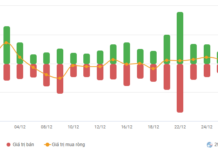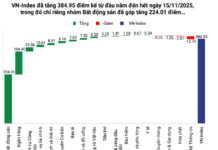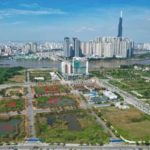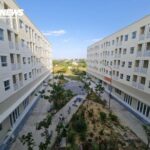
A critical factor is land use costs, which currently account for a significant portion of total housing costs.
Ms. Do Thu Hang, Senior Director of Research & Consultancy Services at Savills Hanoi, shared insights with MarketTimes on the factors shaping the current housing market and its future prospects.
MarketTimes:
What barriers are preventing the housing supply from booming?
Ms. Do Thu Hang:
Key laws on land, housing, and real estate business have been enacted and took effect in August 2024. However, their synchronized and effective implementation requires time for the issuance of detailed guidelines and specific execution.
Currently, many projects are in the final stages of legal completion, design approval, and financial obligations. These steps demand time to ensure transparency and compliance. While progress has accelerated, a lag remains before the supply enters the market.
MarketTimes:
What are your forecasts for housing supply and price trends in Hanoi moving forward?
Ms. Do Thu Hang:
In the second half of 2025, we anticipate around 11,500 apartment units to be launched in Hanoi, primarily in the A and B segments. Product diversification remains limited.
From 2026 onward, as pilot projects complete legal procedures, new supply will surge. Between 2026–2027, Hanoi’s market is expected to welcome approximately 46,600 units from 43 projects, mostly outside the city center. This could pressure prices, but adjustments will likely occur in areas with abundant land and inadequate infrastructure.
For strategically located projects within the Ring Road 2–3 area, developed by reputable investors, prices are expected to remain stable or increase slightly due to scarcity and demand. Overall, instead of a market-wide price drop, we’ll see clear differentiation by location and project quality.
MarketTimes:
What solutions are needed to improve housing supply while making prices affordable for residents?
Ms. Do Thu Hang:
Hanoi is implementing comprehensive solutions: institutional reforms, infrastructure development, and pilot housing projects. Notably, many projects are being considered outside the Ring Road 3–3.5. Once procedures are finalized and products launched, they’ll positively impact price levels.
However, land use costs are critical, currently a major component of total costs. If calculated reasonably, balancing state and business interests, housing prices could become more affordable. Tax incentives, credit, and land policies for affordable housing are also essential to promote this segment.
MarketTimes:
Foreign investors show interest in residential real estate, but FDI in this segment hasn’t surged. Why, and what’s needed to attract FDI effectively?
Ms. Do Thu Hang:
Vietnam’s fundamentals—young population, rapid urbanization, rising incomes, and positive economic outlook—are attractive to foreign investors. Savills observes significant FDI in residential real estate in Hanoi, Ho Chi Minh City, Hai Phong, etc.
To boost FDI in housing, licensing and approval processes must be shortened and made more transparent. Investment procedure speed is a key competitive advantage to retain and attract international capital.
MarketTimes:
How might Hanoi’s focus on public transport and restricting personal vehicles in the inner city affect the real estate market, especially in central areas?
Ms. Do Thu Hang:
This is a comprehensive urban transformation. Restricting personal vehicles will impact access to central areas but won’t directly harm the real estate market.
Real estate is tied to usage needs, with housing being essential. Despite transport changes, residents will find ways to access necessary areas.
The market is observing and analyzing infrastructure and transport changes. Savills believes areas like the Old Quarter, if effectively directed toward tourism and commerce, could maintain or even increase property value.
Housing demand remains high in major cities like Hanoi. Thus, even with transport changes, the real estate market will self-adjust to meet this demand. Given the complexity, continued monitoring is needed rather than premature conclusions about direct impacts on property values.
MarketTimes:
Thank you, Ms. Hang!
Southern Apartment Prices Surge: Units Priced at 30-40 Million VND/m² Becoming Scarce
Upon the announcement of the merger, real estate prices in Ho Chi Minh City and former Binh Duong surged dramatically, skyrocketing by 30-60%. This spike even triggered localized land fever in certain areas. Experts predict this upward trend will persist through the final months of the year.












































